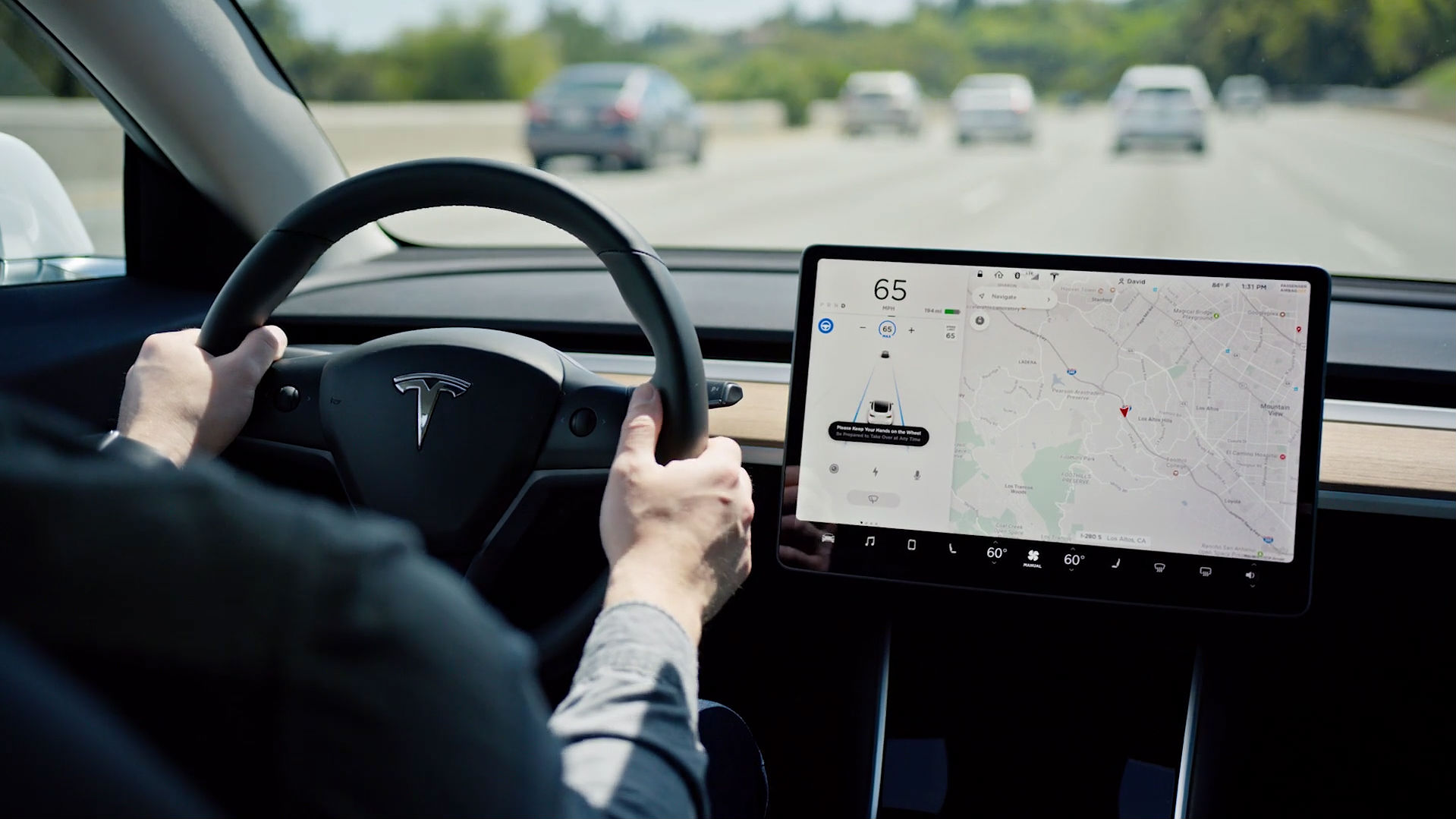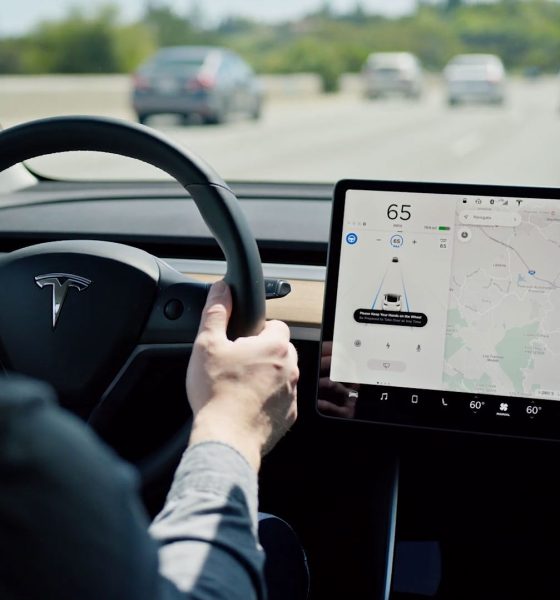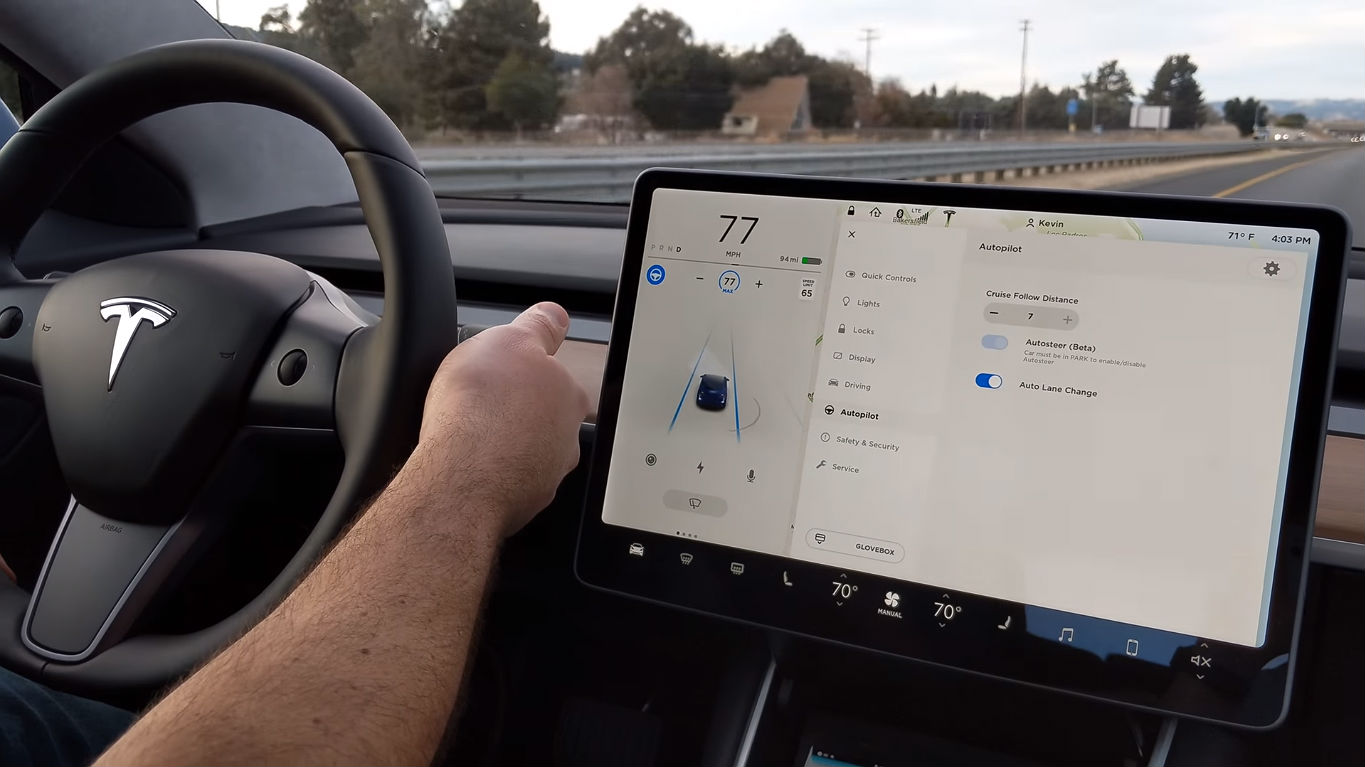

Investor's Corner
Tesla’s Autopilot probe worries Morgan Stanley with ‘reputational risks’
The recently launched Tesla Autopilot probe by the NHTSA is said to be a greater threat to the automaker’s reputation than its financial situation, according to a new note from Morgan Stanley. Headed by analyst Adam Jonas, the note outlines the potential risks that Tesla could face with the probe, which intends to investigate 11 instances of Autopilot-equipped cars crashing into emergency vehicles, according to the documents.
The note outlines four potential risk factors that Tesla could face in a long and drawn-out battle to clear its name of any wrongdoing. In the initial years of autonomous driving development, nearly any instance of a vehicle being involved in an accident has increased skepticism over the potential of future self-driving cars. While Tesla Autopilot only operates on Level 2 autonomy, with Level 5 being a fully operational self-driving machine, the company admittedly states that drivers should still remain alert while the vehicle is in operation, never taking their eyes off the road.
However, this is not the instance for every driver. While Autopilot vehicles from Tesla were involved in accidents on a significantly less-frequent occasion than the national average based on NHTSA statistics, Tesla vehicles involved in accidents seem to catch more media attention than any other instance on the road. After all, we don’t hear about every Chevy Malibu or Ford F-150 crash that occurs, but the false narrative that Teslas drive themselves still floats around in the form of catchy headlines or misleading articles.
The chance for reputational risks is one of the most notable points of the Morgan Stanley note and is the point that the analysts expand on the most. “Vehicle safety actions and recalls (both voluntary and involuntary) are a fact of life in the auto industry, despite cars achieving greater capability and quality over time. While we are not making any changes to our Tesla model and price target at this time, the NHTSA serves as a reminder to investors about the importance of vehicle safety as we turn over greater portions of driving to software in a network,” the note said.

A Tesla Model 3 on Autopilot. [Credit: LivingTesla/YouTube]
Of course, semi-autonomous vehicles, and autonomy in general for automotive, is a young and relatively new feature in the world of cars. There are bound to be mistakes and incidents just as there were with early vehicles. Accidents happen, but the early adopters of motor vehicles did not give up on the task of making them better and safer, and that’s precisely what will happen as more companies take a crack at the potential autonomous driving sector.
“The regulatory, legal, and moral/ethical nuances are difficult, if not impossible, to model. As human driving transitions to computer driving, accident frequency is expected to decline by 90% or more (some experts insist accident frequency must ultimately fall by greater than 99.9%). At the same time, accident ‘fault’ transitions from someone to something,” the note also states. “Just our view, but there is no moral equivalency between a ‘human-caused’ traffic fatality and a ‘system-caused’ traffic fatality. Over time, we believe the industry should be in position to provide vehicle data for 3rd party validation to prove the significant societal/health and safety benefits of autonomy.
Morgan Stanley on the NHTSA probe ??$TSLA pic.twitter.com/wF9r2fuMsq
— David Tayar (@davidtayar5) August 18, 2021
As noted yesterday in an interview with former Ford CEO Mark Fields, the NHTSA study into Tesla could take up to 18 months. Morgan Stanley reiterates this point in its note, especially with Autopilot’s “high profile nature.” Unfortunately, Tesla’s flashy name and mainstream personality as an automaker, especially a revolutionary one, has put them at center stage for this kind of attention. Those with a reasonable platform may not understand all of the functionalities or safety precautions of Autopilot’s nature. Still, unfortunately, many of the accidents are being described as the software’s fault, although many of the instances are actually driver errors.
At the time of writing, TSLA stock was trading at $689.79, up over 3.6%.
Disclosure: Joey Klender is a TSLA Shareholder.

Elon Musk
Tesla stock gets latest synopsis from Jim Cramer: ‘It’s actually a robotics company’
“Turns out it’s actually a robotics and Cybercab company, and I want to buy, buy, buy. Yes, Tesla’s the paper that turned into scissors in one session,” Cramer said.

Tesla stock (NASDAQ: TSLA) got its latest synopsis from Wall Street analyst Jim Cramer, who finally realized something that many fans of the company have known all along: it’s not a car company. Instead, it’s a robotics company.
In a recent note that was released after Tesla reported Earnings in late January, Cramer seemed to recognize that the underwhelming financials and overall performance of the automotive division were not representative of the current state of affairs.
Instead, we’re seeing a company transition itself away from its early identity, essentially evolving like a caterpillar into a butterfly.
The narrative of the Earnings Call was simple: We’re not a car company, at least not from a birds-eye view. We’re an AI and Robotics company, and we are transitioning to this quicker than most people realize.
Tesla stock gets another analysis from Jim Cramer, and investors will like it
Tesla’s Q4 Earnings Call featured plenty of analysis from CEO Elon Musk and others, and some of the more minor details of the call were even indicative of a company that is moving toward AI instead of its cars. For example, the Model S and Model X will be no more after Q2, as Musk said that they serve relatively no purpose for the future.
Instead, Tesla is shifting its focus to the vehicles catered for autonomy and its Robotaxi and self-driving efforts.
Cramer recognizes this:
“…we got results from Tesla, which actually beat numbers, but nobody cares about the numbers here, as electric vehicles are the past. And according to CEO Elon Musk, the future of this company comes down to Cybercabs and humanoid robots. Stock fell more than 3% the next day. That may be because their capital expenditures budget was higher than expected, or maybe people wanted more details from the new businesses. At this point, I think Musk acolytes might be more excited about SpaceX, which is planning to come public later this year.”
He continued, highlighting the company’s true transition away from vehicles to its Cybercab, Optimus, and AI ambitions:
“I know it’s hard to believe how quickly this market can change its attitude. Last night, I heard a disastrous car company speak. Turns out it’s actually a robotics and Cybercab company, and I want to buy, buy, buy. Yes, Tesla’s the paper that turned into scissors in one session. I didn’t like it as a car company. Boy, I love it as a Cybercab and humanoid robot juggernaut. Call me a buyer and give me five robots while I’m at it.”
Cramer’s narrative seems to fit that of the most bullish Tesla investors. Anyone who is labeled a “permabull” has been echoing a similar sentiment over the past several years: Tesla is not a car company any longer.
Instead, the true focus is on the future and the potential that AI and Robotics bring to the company. It is truly difficult to put Tesla shares in the same group as companies like Ford, General Motors, and others.
Tesla shares are down less than half a percent at the time of publishing, trading at $423.69.
Elon Musk
Tesla to a $100T market cap? Elon Musk’s response may shock you

There are a lot of Tesla bulls out there who have astronomical expectations for the company, especially as its arm of reach has gone well past automotive and energy and entered artificial intelligence and robotics.
However, some of the most bullish Tesla investors believe the company could become worth $100 trillion, and CEO Elon Musk does not believe that number is completely out of the question, even if it sounds almost ridiculous.
To put that number into perspective, the top ten most valuable companies in the world — NVIDIA, Apple, Alphabet, Microsoft, Amazon, TSMC, Meta, Saudi Aramco, Broadcom, and Tesla — are worth roughly $26 trillion.
Will Tesla join the fold? Predicting a triple merger with SpaceX and xAI
Cathie Wood of ARK Invest believes the number is reasonable considering Tesla’s long-reaching industry ambitions:
“…in the world of AI, what do you have to have to win? You have to have proprietary data, and think about all the proprietary data he has, different kinds of proprietary data. Tesla, the language of the road; Neuralink, multiomics data; nobody else has that data. X, nobody else has that data either. I could see $100 trillion. I think it’s going to happen because of convergence. I think Tesla is the leading candidate [for $100 trillion] for the reason I just said.”
Musk said late last year that all of his companies seem to be “heading toward convergence,” and it’s started to come to fruition. Tesla invested in xAI, as revealed in its Q4 Earnings Shareholder Deck, and SpaceX recently acquired xAI, marking the first step in the potential for a massive umbrella of companies under Musk’s watch.
SpaceX officially acquires xAI, merging rockets with AI expertise
Now that it is happening, it seems Musk is even more enthusiastic about a massive valuation that would swell to nearly four-times the value of the top ten most valuable companies in the world currently, as he said on X, the idea of a $100 trillion valuation is “not impossible.”
It’s not impossible
— Elon Musk (@elonmusk) February 6, 2026
Tesla is not just a car company. With its many projects, including the launch of Robotaxi, the progress of the Optimus robot, and its AI ambitions, it has the potential to continue gaining value at an accelerating rate.
Musk’s comments show his confidence in Tesla’s numerous projects, especially as some begin to mature and some head toward their initial stages.
Elon Musk
Tesla director pay lawsuit sees lawyer fees slashed by $100 million
The ruling leaves the case’s underlying settlement intact while significantly reducing what the plaintiffs’ attorneys will receive.

The Delaware Supreme Court has cut more than $100 million from a legal fee award tied to a shareholder lawsuit challenging compensation paid to Tesla directors between 2017 and 2020.
The ruling leaves the case’s underlying settlement intact while significantly reducing what the plaintiffs’ attorneys will receive.
Delaware Supreme Court trims legal fees
As noted in a Bloomberg Law report, the case targeted pay granted to Tesla directors, including CEO Elon Musk, Oracle founder Larry Ellison, Kimbal Musk, and Rupert Murdoch. The Delaware Chancery Court had awarded $176 million to the plaintiffs. Tesla’s board must also return stock options and forego years worth of pay.
As per Chief Justice Collins J. Seitz Jr. in an opinion for the Delaware Supreme Court’s full five-member panel, however, the decision of the Delaware Chancery Court to award $176 million to a pension fund’s law firm “erred by including in its financial benefit analysis the intrinsic value” of options being returned by Tesla’s board.
The justices then reduced the fee award from $176 million to $70.9 million. “As we measure it, $71 million reflects a reasonable fee for counsel’s efforts and does not result in a windfall,” Chief Justice Seitz wrote.
Other settlement terms still intact
The Supreme Court upheld the settlement itself, which requires Tesla’s board to return stock and options valued at up to $735 million and to forgo three years of additional compensation worth about $184 million.
Tesla argued during oral arguments that a fee award closer to $70 million would be appropriate. Interestingly enough, back in October, Justice Karen L. Valihura noted that the $176 award was $60 million more than the Delaware judiciary’s budget from the previous year. This was quite interesting as the case was “settled midstream.”
The lawsuit was brought by a pension fund on behalf of Tesla shareholders and focused exclusively on director pay during the 2017–2020 period. The case is separate from other high-profile compensation disputes involving Elon Musk.








